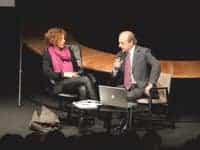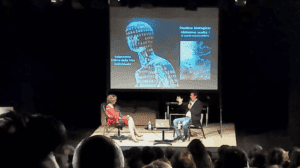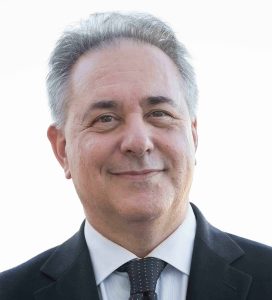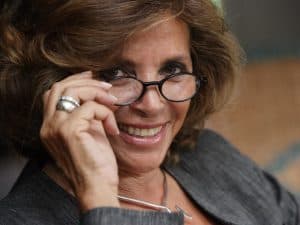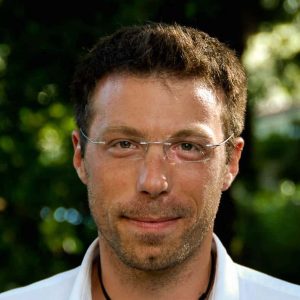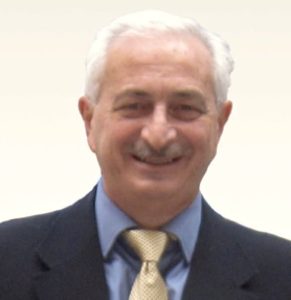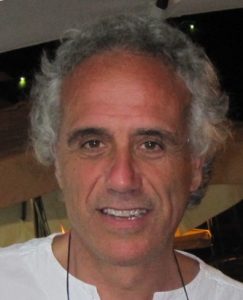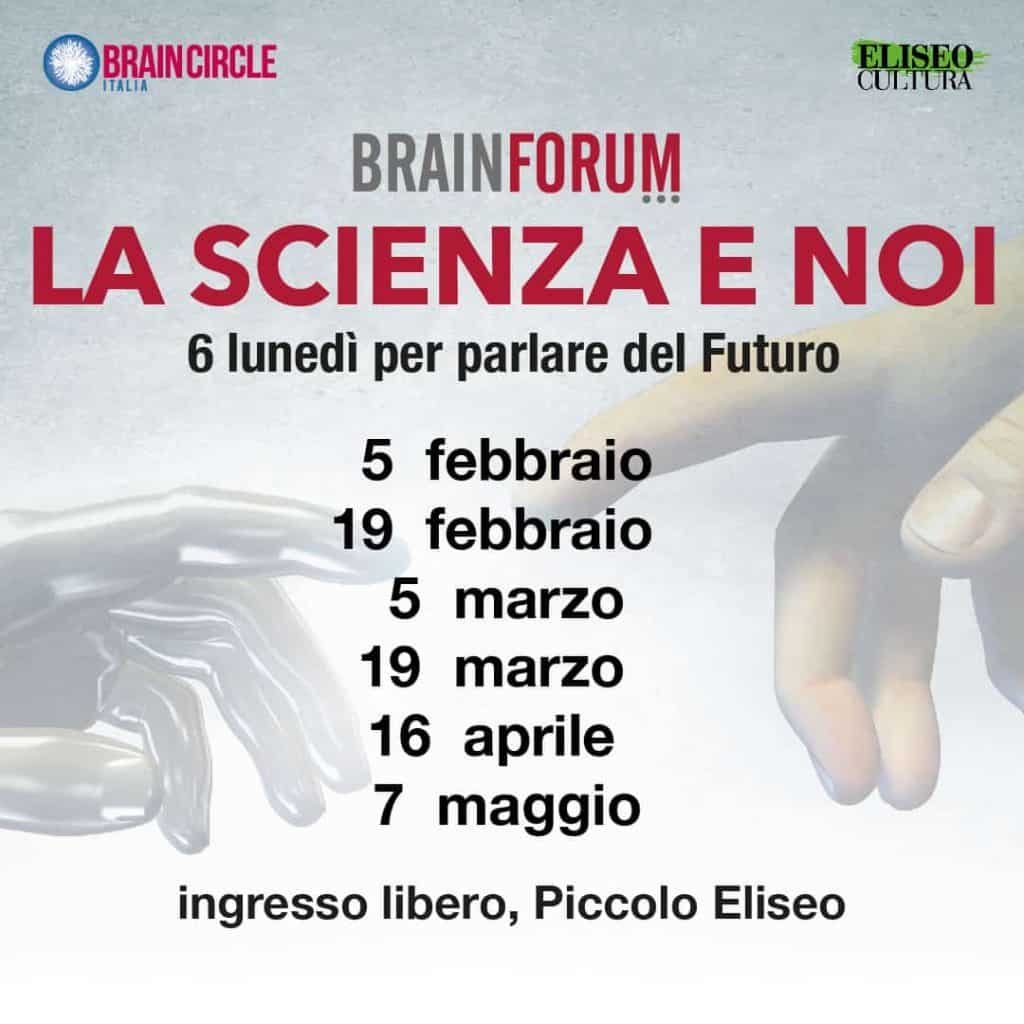
After the great success of the previous edition, which was sold out at every meeting, the long-awaited series of meetings with La Scienza e Noi is repeated, at the Piccolo Eliseo in Rome, in which internationally renowned experts and scientists, interviewed by Viviana Kasam, are aimed at a heterogeneous audience (enthusiasts, researchers, young people) to convey, through a discursive language, not for “experts”, the emotion and beauty of science.
How will the most innovative scientific research change the way we live and perceive the world?
Science and us has invited six speakers of great national and international importance to talk about the most cutting-edge research and how it will transform the daily lives of each of us, with the desire to convey the emotion and beauty of science to the public.
With three stars of Italian science working abroad: Martin Monti, at UCLA, known throughout the world for his research on consciousness; Nicola Marzani, who directs the Center for the discovery of new materials at the EPFL in Lausanne, and Valerio Orlando, who founded and directs the Center for Epigenetics at the King Abdullah University of Science and Technology (KAUST), a jewel of technology in Arabia Saudi Arabia, and is one of the founders of the Dulbecco Telethon Institute (DTI).
February 5, 8.00 pm – Cultivate the sea to save it
New technologies open up new opportunities for exploration and use of marine resources, but raise new responsibilities.
The sea plays a crucial role in the functioning of the biosphere, but with regards to the sea, man is still at the hunter-gatherer stage and has plundered it with the consequences that are clear for all to see today. The explosion of new technologies, from robotics to molecular biology, opens up enormous new opportunities for exploration and even exploitation of marine resources, but raises new responsibilities that require a radical cultural change, both from the scientific and the of the strategy for using the sea, which transforms us into ‘farmers’ of the sea.
This is the challenge of Blue Growth: promoting sustainable use of marine resources, positively exploiting the opportunities offered by the ecosystem which covers 70% of the Earth’s surface.
Blue Growth is an initiative of the European Commission to enhance the potential of the European seas, oceans and coasts for the creation of new job opportunities and new companies in the productive sectors of the so-called “Blue Economy“, in sustainable way, through the promotion of research, technological transfer and partnership between scientific research and the industrial sector.
The definition of Blue Economy includes all human activities that use the sea, coasts and seabed as resources for industrial activities and the development of services, such as aquaculture, fishing, marine biotechnology, maritime, coastal and tourism tourism. cruise, maritime transport, ports and shipbuilding sector, marine renewable energy, inserted from a sustainability perspective.
Blue Growth is the long-term strategy to support sustainable growth in the marine and maritime sectors and recognizes that the seas and oceans represent a driver for the European economy, with enormous potential for innovation and growth.
With Rosalba Giugni and Maurizio Ribera D’Alcalà.
February 19, 8.00 pm – Big data for security and the economy: at what price?
Big Data and Artificial Intelligence on the one hand worry and make us fear Big Brother, on the other they can be used to improve our lives.
The fight against crime, terrorism and the social devastation caused by incorrect economic forecasts can today make use of the acquisition of enormous quantities of data and timely analysis conducted with increasingly powerful computers. The new theories based on Economic Complexity, developed by prof. Pietronero and his team, in collaboration with the World Bank, lead to a new scientific approach to the prediction of economic development.
Machine learning and deep learning algorithms applied to Big Data are the basis of the most innovative security solutions proposed by the prof. Colajanni, which allow us to counteract the quantity and heterogeneity of available information, processing it into effective actions.
The winning organizations will be those that know how to combine the strength of machines with the intelligence of man.
With Michele Colajanni and Luciano Pietronero.
March 5, 8.00 pm – Can the brain be regenerated?
Recent studies contradict the belief that neurons die with age and nothing can be done to slow down this process: the presence of neural stem cells in some areas of the brain, in fact, allows dead neurons to be replaced with brand new neurons, a fundamental regenerative mechanism for memory.
Furthermore, the regeneration of neurons and the reorganization of interneuronal connections make our brain extremely plastic. This is precisely the topic that fascinates the professor Comi, and which he will talk about at the Piccolo Eliseo: cerebral plasticity, or how, contrary to common beliefs, the brain can regenerate.
Research in this field has a fundamental impact both for rehabilitation in the case of trauma, neurodegenerative diseases, stroke, but also for counteracting the physiological aging process of the brain, which begins very slowly from the age of 20-25, the age at which you begin to lose 2 per thousand of your brain volume every year. “The progressive loss of volume does not immediately correspond to a decline in cognitive functions, because the brain is plastic,” explains Prof. Comi. “that is, it is able to compensate for its deficits: in the presence of loss of neurons, the other neurons learn to work harder and better even if in fewer numbers; in particular, those assigned to high functions improve organizational capabilities, while the less strategic ones are lost sooner. If a person has lived well and respected his brain, atrophy will evolve less quickly and intellectual functions will be better preserved. Cerebral atrophy can instead be accelerated by neurological pathologies.”
The meeting at the Piccolo Eliseo will help to understand how to keep the brain in shape and what the rehabilitation prospects are in the case of loss of some faculties, also in light of the most recent studies in the field of electromagnetic stimulation, brain-computer interfaces, the use of stem cells, which Prof. was the first to do. How it has been applied to the treatment of multiple sclerosis. An unmissable meeting for anyone interested in keeping the most important organ for our well-being trained.
March 19, 8.00 pm – Epigenetics: the odyssey of the genome
Each of us is like a musical score, which, although always maintaining the same genetic background, can be interpreted by each performer in a different way, and with different instruments.
The most classic example is that of homozygous twins, with identical DNA, who seem the same, but are not, because the progressive accumulation of different biological and cultural experiences during their lives always makes them different in any case.
This is what epigenetics studies. The term, coined in 1942 by the English biologist and paleontologist Conrad Waddington (1905-1975), defines “the branch of biology that studies the causal interactions between genes and their product and creates the phenotype”, that is, the set of all the environmental and cultural characteristics that determine the behavior of genes. Therefore, a discipline that researches how different characteristics can develop starting from the same genetic background. And these examples introduce us to one of the most fascinating aspects of this discipline: is this complexity transmissible? How much of this wealth of information is passed on to subsequent generations? Valerio Orlando, who founded and directs the Epigenetics Center at the King Abdullah University of Science and Technology (KAUST), tells us about it.
With this notion of “biological identity as the result of the journey of our genome through the phases of life” we can broaden the field: to our personal biological history, from the beginning of life, to the parental care received, to the studies completed, to all those experiences also affective and behavioral ones that permanently influence neural circuits and shape an individual’s personality. There are effects deriving from drug use or alcoholism, conditions associated with the so-called DNA methylation, a response of genes to certain signals that is spoiled by this type of modifications.
Epigenetics opens new perspectives in many fields: from the medical one, to the nutritional one, to the study of social behaviors. What do these studies lead to? They introduce a new element of personal responsibility, that is, that our destiny is not necessarily written only in DNA but that it is the interaction with the environment that ultimately determines our individual biological identity.
These facts can become concrete arguments for policies aimed at promoting health, more correct lifestyles and healthy nutrition. And of course, in the medical field, they will help us understand why drug responses are so different and contribute to so-called personalized medicine.
April 16, 8.00 pm – The mystery of consciousness: technology and the future
What is consciousness? Why do we sometimes lose it? How can you tell if someone who can’t communicate is somehow conscious? Can consciousness be rekindled?
The vegetative state is a condition in which, after a severe brain injury, patients are awake but unaware – it is one of the most challenging and least understood conditions of the human brain. Exploring these studies represents a journey into the center of identity through the most advanced technological equipment, to answer some of the most fascinating mysteries concerning human beings.
On Monday 16 April La Scienza e Noi exhibition is proud to bring a young and extraordinary neuroscientist, to Rome at the Piccolo Eliseo. Martin Monti, who directs the research laboratory focused on coma and consciousness at the University of California at Los Angeles (UCLA). Italian, Milanese by birth, graduated from Bocconi and subsequently Phd from Princeton, Monti has published in the most prestigious international journals and is invited to speak at the most important universities around the world.
With his team he developed a very innovative test about ten years ago to understand how much brain capacity exists in patients in a vegetative state and minimally conscious state. For this reason he was invited in 2013 to visit Ariel Sharon in Israel, who had been in a serious state of disorder of consciousness since 2007: his magnetic resonance imaging revealed that there were signals of cerebral activity in the Israeli prime minister’s brain.
Today Monti is working on an ambitious project called Lifu (Low Intensity Focused Ultrasounds), a revolutionary and non-invasive technique, to try to help ‘restart’ the brains of patients in coma, by ‘massaging’, with low intensity focused ultrasound intensity, the thalamus, a brain area crucial for the emergence of consciousness. The media have talked about it all over the world due to not only the medical but also the ethical implications that arise from it. Monti’s hope is to produce a device that can help people in a vegetative or minimally conscious state to recover some level of cognitive faculties. For now we are only at the first experiments, conducted on five patients with interesting results, but it is too early to be able to draw definitive conclusions. The professor. Monti and his team are recruiting new patients and expect to reach 10 cases in two years.
Martin Monti will explain where studies on consciousness, one of the most mysterious human characteristics, are at today, and will talk about his work with people in comas and the hopes that his research opens up.
May 7, 8.00 pm – New materials to rethink the world
How do we discover, invent, and benefit from new materials, understanding and predicting the effects they can have.
The ages of human civilization have often taken the name of the materials that defined them – stone, bronze, iron – and perhaps we should add oil, silicon, uranium: materials that save us and kill us. What do you need now to survive, to live, and to live better? How can we hold together a poisoned planet that is heading towards ten billion inhabitants? How do we discover, invent, and benefit from the new materials we need, understanding and predicting “in vitro” the effects, even negative ones, that they may have?
Nicola Marzari, who directs the Center for the discovery of new materials at the EPFL in Lausanne, will show how quantum simulations work which, with the help of supercomputers, elaborate the equations that allow us to understand the functioning of new materials or invent others, without ever having to do an experiment.

